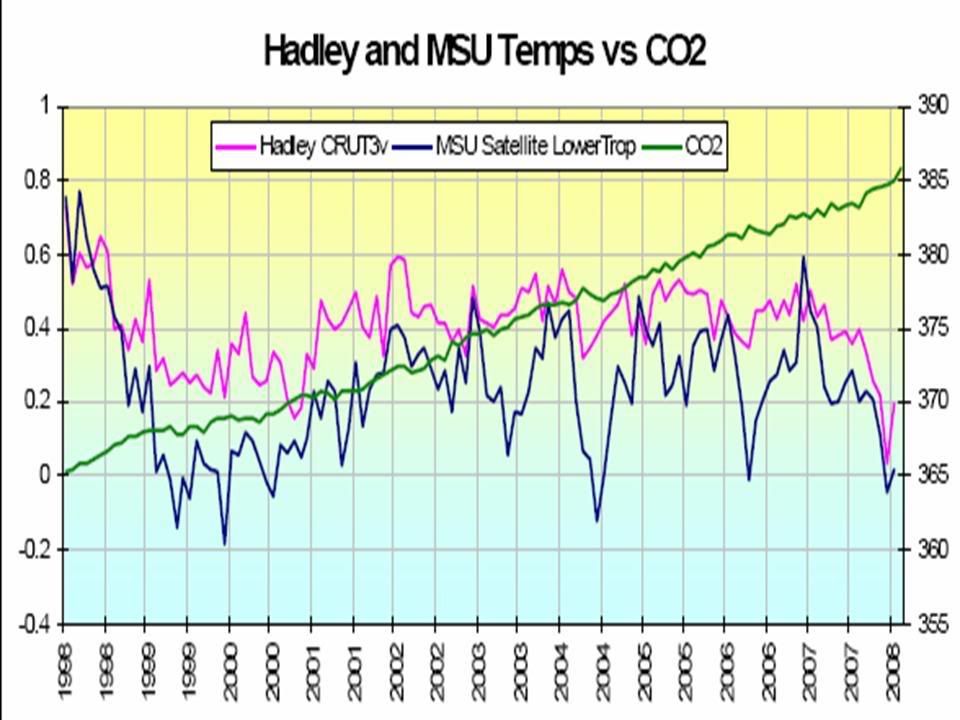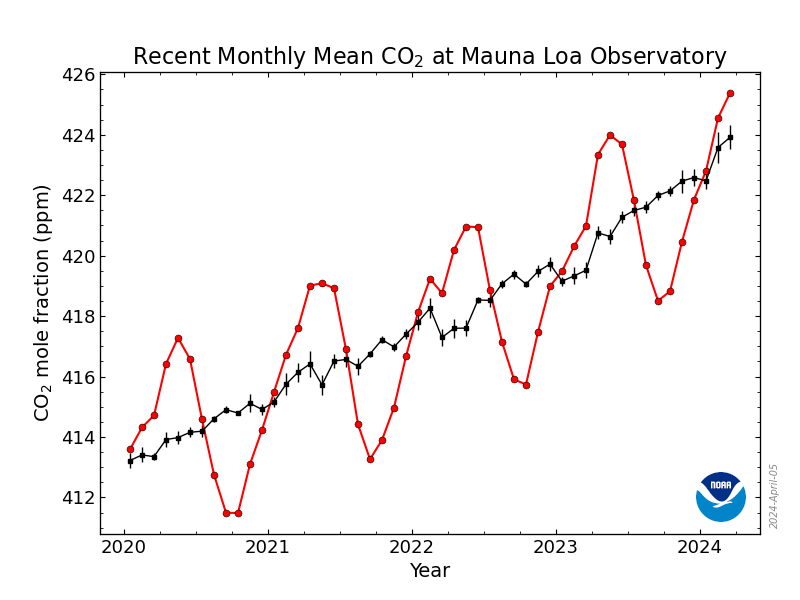UN asked to admit climate change errors
by maggie
A group of four scientists has sent a letter to the UN’s IPCC asking them to “admit that there is no observational evidence in measured data going back 22,000 years or even millions of years that CO2 levels (whether from man or nature) have driven or are driving world temperatures.”
This is reprint of the letter sent to the IPCC on Monday, April 14
14 April 2008
Dear Dr. Pachauri and others associated with IPCC
We are writing to you and others associated with the IPCC position – that man’s CO2 is a driver of global warming and climate change – to ask that you now in view of the evidence retract support from the current IPCC position [as in footnote 1] and admit that there is no observational evidence in measured data going back 22,000 years or even millions of years that CO2 levels (whether from man or nature) have driven or are driving world temperatures or climate change.
If you believe there is evidence of the CO2 driver theory in the available data please present a graph of it.
We draw your attention to three observational refutations of the IPCC position (and note there are more). Ice-core data from the ACIA (Arctic Climate Impact Assessment) shows that temperatures have fallen since around 4,000 years ago (the Bronze Age Climate Optimum) while CO2 levels have risen, yet this graphical data was not included in the IPCC Summary for Policymakers (Fig. SPM1 Feb07) which graphed the CO2 rise.
More recent data shows that in the opposite sense to IPCC predictions world temperatures have not risen and indeed have fallen over the past 10 years while CO2 levels have risen dramatically.
The up-dated temperature measurements have been released by the NASA’s Microwave Sounding Unit (MSU) [1] as well as by the UK’s Hadley Climate Research Unit (Temperature v. 3, variance adjusted - Hadley CRUT3v) [2]. In parallel, readings of atmospheric concentrations of CO2 have been released by the Mauna Loa Observatory in Hawaii [3]. They have been combined in graphical form by Joe D’Aleo [4], and are shown below.
These latest temperature readings represent averages of records obtained from standardized meteorological stations from around the planet, located in both urban as well as rural settings. They are augmented by satellite data, now generally accepted as ultimately authoritative, since they have a global footprint and are not easily vulnerable to manipulation nor observer error. What is also clear from the graphs is that average global temperatures have been in stasis for almost a decade, and may now even be falling.
A third important observation is that contrary to the CO2 driver theory, temperatures in the upper troposphere (where most jets fly) have fallen over the past two decades. [Footnote 2]
IPCC policy is already leading to economic and unintended environmental damage. Specifically the policy of burning food - maize as biofuel - has contributed to sharp rises in food prices which are causing great hardship in many countries and is also now leading to increased deforestation in Brazil, Malaysia, Indonesia, Togo, Cambodia, Nigeria, Burundi, Sri Lanka, Benin and Uganda for cultivation of crops [5].
Given the economic devastation that is already happening and which is now widely recognised will continue to flow from this policy, what possible justification can there be for its retention?
We ask you and all those whose names are associated with IPCC policy to accept the scientific observations and renounce current IPCC policy.
Yours sincerely,
Hans Schreuder, Analytical Chemist, mMensa,
hans@tech-know.eu
Piers Corbyn, Astrophysicist UK, Dir. WeatherAction.com,
piers@weatheraction.com
Dr Don Parkes, Prof. Em. Human Ecology, Australia,
dnp@networksmm.com.au
Svend Hendriksen, Nobel Peace Prize 1988 (shared), Greenland,
hendriksen@greennet.gl
Cc: IPCC’s
yu.izrael@g23.relcom.ru christy@nsstc.uah.edu spencer@nsstc.uah.edu dy.pitman@gmail.com
Tim Yeo MP (Chairman Environmental Audit Committee) Lord Martin Rees (President Royal Society)
Gordon Brown MP David Cameron MP Nick Glegg MP
Footnote 1: Two heavily publicised quotations which emerged from your organisation, respectively in February and December last year, are:
Most of the observed increase in global average temperatures since the mid-20th century is very likely due to the observed increase in anthropogenic GHG concentrations. It is likely that there has been significant anthropogenic warming over the past 50 years averaged over each continent (except Antarctica) (Figure SPM.4).{2.4} [6] and
The 2007 IPCC report, compiled by several hundred climate scientists, has unequivocally concluded that our climate is warming rapidly, and that we are now at least 90% certain that this is mostly due to human activities. The amount of carbon dioxide in our atmosphere now far exceeds the natural range of the past 650,000 years, and it is rising very quickly due to human activity. If this trend is not halted soon, many millions of people will be at risk from extreme events such as heat waves, drought, floods and storms, our coasts and cities will be threatened by rising sea levels, and many ecosystems, plants and animal species will be in serious danger of extinction. (Summary statement, Bali Conference.) [7].
Footnote 2: “Data over the past two decades indicates that temperatures have actually declined in the upper troposphere, even though there has been some minor upward trends in temperature at sea level and lower altitudes. This completely contradicts conventional global warming models. Before we radically rearrange the political economy of the world because some scientists claim anthropogenic CO2 is the cause of climate change, it might be worthwhile for anyone taking a position on the topic to consider whether or not this is indeed “well settled science.” Dr. Richard Lindzen, MIT, March 2008.
References:
1.
http://www.ncdc.noaa.gov/oa...te/research/msu.html
2.
http://www.cru.uea.ac.uk/cru/data/temperature
3.
http://www.esrl.noaa.gov/gmd/ccgg/trends/
4.
http://icecap.us/index.php/go/experts Joseph D’Aleo, Certified Consultant Meteorologist,
Fellow of the American Meteorological Society (AMS), Executive Director Icecap.us
5.
http://rainforests.mongabay.com/0801.htm
6.
http://www.ipcc.ch/pdf/asse.../syr/ar4_syr_spm.pdf
7.
http://www.climate.unsw.edu.au/bali/






